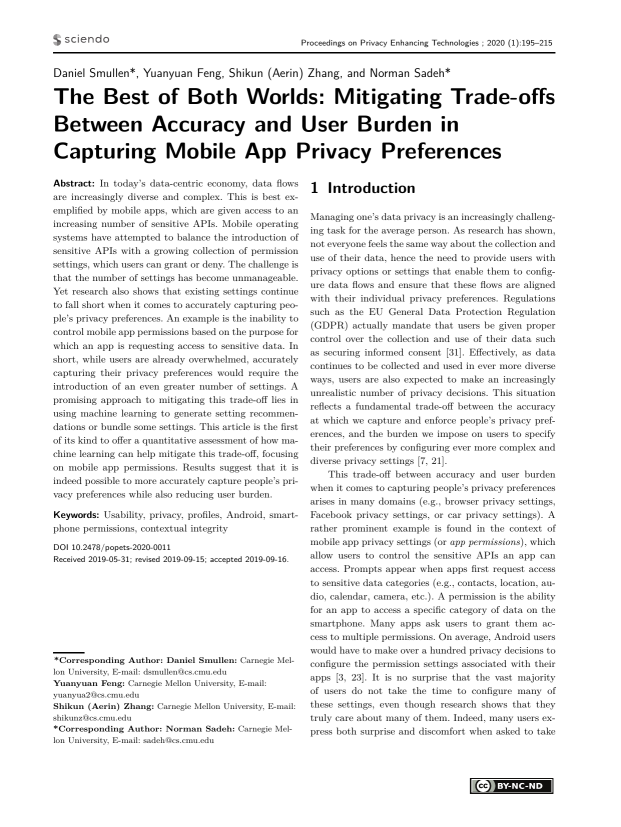The Best of Both Worlds: Mitigating Trade-offs Between Accuracy and User Burden in Capturing Mobile App Privacy Preferences
Authors: Daniel Smullen (Carnegie Mellon University), Yuanyuan Feng (Carnegie Mellon University), Shikun (Aerin) Zhang (Carnegie Mellon University), Norman Sadeh (Carnegie Mellon University)
Volume: 2020
Issue: 1
Pages: 195–215
DOI: https://doi.org/10.2478/popets-2020-0011
Abstract: In today’s data-centric economy, data flows are increasingly diverse and complex. This is best exemplified by mobile apps, which are given access to an increasing number of sensitive APIs. Mobile operating systems have attempted to balance the introduction of sensitive APIs with a growing collection of permission settings, which users can grant or deny. The challenge is that the number of settings has become unmanageable. Yet research also shows that existing settings continue to fall short when it comes to accurately capturing people’s privacy preferences. An example is the inability to control mobile app permissions based on the purpose for which an app is requesting access to sensitive data. In short, while users are already overwhelmed, accurately capturing their privacy preferences would require the introduction of an even greater number of settings. A promising approach to mitigating this trade-off lies in using machine learning to generate setting recommendations or bundle some settings. This article is the first of its kind to offer a quantitative assessment of how machine learning can help mitigate this trade-off, focusing on mobile app permissions. Results suggest that it is indeed possible to more accurately capture people’s privacy preferences while also reducing user burden.
Keywords: Usability, privacy, profiles, Android, smartphone permissions, contextual integrity
Copyright in PoPETs articles are held by their authors. This article is published under a Creative Commons Attribution-NonCommercial-NoDerivs 3.0 license.

